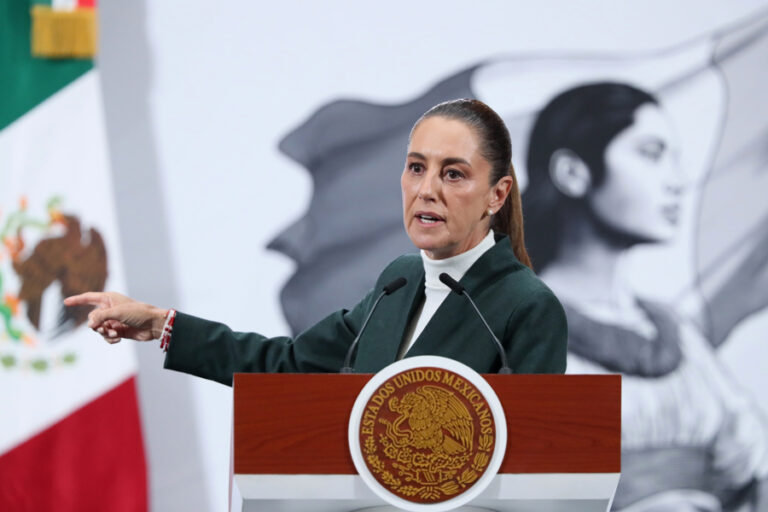
Sugar Tax as Public Health Issue!
Mexico City, Oct 17 (EFE) –
Mexico’s President Claudia Sheinbaum on Friday asserted that the tax increase on soft drinks and other high-sugar products, assuring it is not about tax collection purposes but public health.

“This is accompanied by an information campaign by the Mexican Government’s Ministry of Health (…) about the effects of excessive sugary drinks and junk food consumption. (…) The objective is not to raise money, but to encourage people to consume less”, said the President during her morning press conference.

The Mexican president stated that child obesity has increased based on recent measurements from the federal program ‘Live Healthy, Live Happy,’ which was applied to elementary school children.
“The level of diabetes, hypertension, and obesity of girls and boys in Mexico (…) has increased. The problem of obesity and diabetes is associated in many studies essentially with the excessive consumption of what we call junk food and sugary drinks”, she added.

The president explained that the tax increase seeks to modify consumption patterns.
“What is its objective? Well, if you used to spend 100 pesos (approximately $5.42) on sugary drinks in a month, those 100 pesos will continue to be spent, but on fewer soft drinks. That is the objective, to consume less”.

She also stressed that the government expects the industry to also reduce the sugar content in its products.
“If, in addition to that, we get the soft drink companies to say, ‘Well, we are going to lower the production formula of Coca-Cola or other soft drinks or other sugary drinks by 30%,’ it is doubly good,” she said.

Sheinbaum’s statements follow her announcement on Thursday of an agreement with the sugar-sweetened beverage industry that includes a 30% reduction of sugar content in soft drinks, restrictions on advertising aimed at minors, and a price differentiation between sugar-sweetened and calorie-free beverages, in exchange for moderating the tax increase.
Eduardo Clark, Undersecretary of Integration and Development of the Health Sector, explained that the agreement was a 3.08 pesos (0.17 dollars) tax per liter for sugared beverages, but calorie-free versions will pay 1.50 pesos (0.081 dollars).
Clark stressed that the agreement was not made “on the sly” and that it will be verifiable.

“If we continue to see advertising with minors, they are clearly not complying with it, and the government has tools for stronger measures,” he warned.
Mexico is one of the largest consumers of soft drinks, with an average of 166 liters per person per year, according to official data.
The consumption of sugary drinks is linked to the high prevalence of obesity and type 2 diabetes, the main causes of death in the country. EFE

csr/mcd




